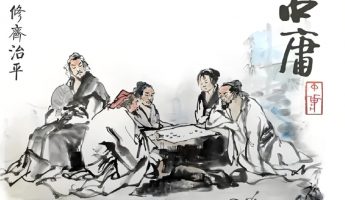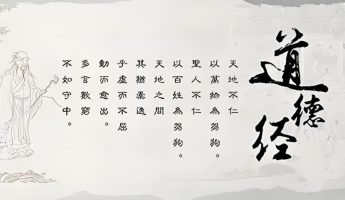In the fast-paced modern society, when philosophy is often referred to as’ useless’, it is actually shaping our souls and lives invisibly with its profound insight. In the midst of pressure and turmoil, it is philosophy that provides us with a peaceful harbor, guiding us to maintain inner peace and self in times of change.
The dialogue between Confucius and Zigong reveals the true essence of life: whether it is cultivation or learning, it is an indispensable practice of life, and its value lies in the process itself, rather than simply pursuing external achievements and rewards. Confucian philosophy emphasizes that one cannot evade responsibility and should actively take action, but this action should be based on inner consciousness and love, rather than a utilitarian heart.
Laozi, on the other hand, revealed the universal laws of the cycle of nature and the development of things through the concept of “the movement of the opposite way”. He reminded us that when things develop to the extreme, they must reverse, advocated the doctrine of the mean, avoided extremes and excesses, and achieved harmony and balance. In the face of life’s challenges, Laozi advocates the wisdom of “the husband should not compete, so the world cannot compete with him”, which teaches us to seek cooperation in competition and maintain inner peace and strength in chaos.
Zhuangzi elaborated on the true meaning of happiness by stating that ‘the virtue of giving birth to things’, that is, conforming to nature and freely developing one’s nature is the greatest happiness. He encourages us to recognize and unleash our own potential, and to enjoy every moment that life bestows upon us.
In the Doctrine of the Mean, the phrase ‘self sincerity is called nature; self sincerity is called teaching’ emphasizes the importance of self-cultivation and practice. Through sincerity and enlightenment in our hearts, we can better understand the meaning of life and put it into practice, thus achieving the realm of self-improvement.
Mozi’s concept of “universal love” transcends narrow personal emotions and advocates for indiscriminate love for all. This broad mindedness not only helps alleviate interpersonal conflicts and contradictions, but also serves as an important cornerstone for building a harmonious society.
Xunzi explored the necessity of self reflection and self-restraint from the perspective of human nature. He believes that due to limited resources and infinite desires, people must learn to restrain and yield in order to maintain social harmony and stability. At the same time, he also emphasized the importance of etiquette, believing that etiquette is the external manifestation of morality and an important criterion for regulating people’s behavior.
Mencius firmly believed in the inherent goodness of human nature and advocated expanding the goodness through education and self-cultivation, making it a powerful force for promoting social progress. He believes that as long as everyone can unleash their goodness, society will be filled with love and harmony.
Finally, Han Feizi proposed the management principle of “following the name while fulfilling responsibilities” with his unique political wisdom. He emphasized that managers should assess actual effectiveness based on their positions and responsibilities to ensure the effectiveness and fairness of management. This concept is not only applicable to ancient political practices, but also has important implications for organizational management in modern society.
Chinese philosophy provides us with rich life guidance and ideological resources with its unique wisdom and profound insight. By learning and comprehending these philosophical ideas, we can better face the challenges and responsibilities of life, achieve self-improvement and transcendence.



